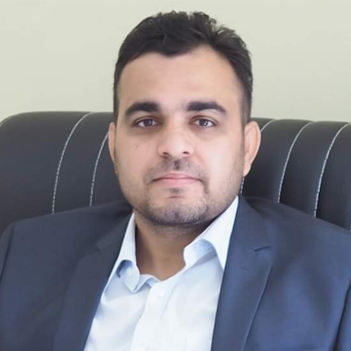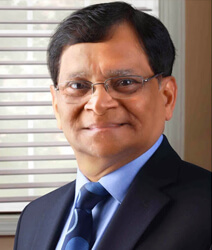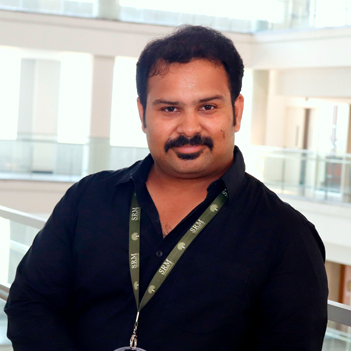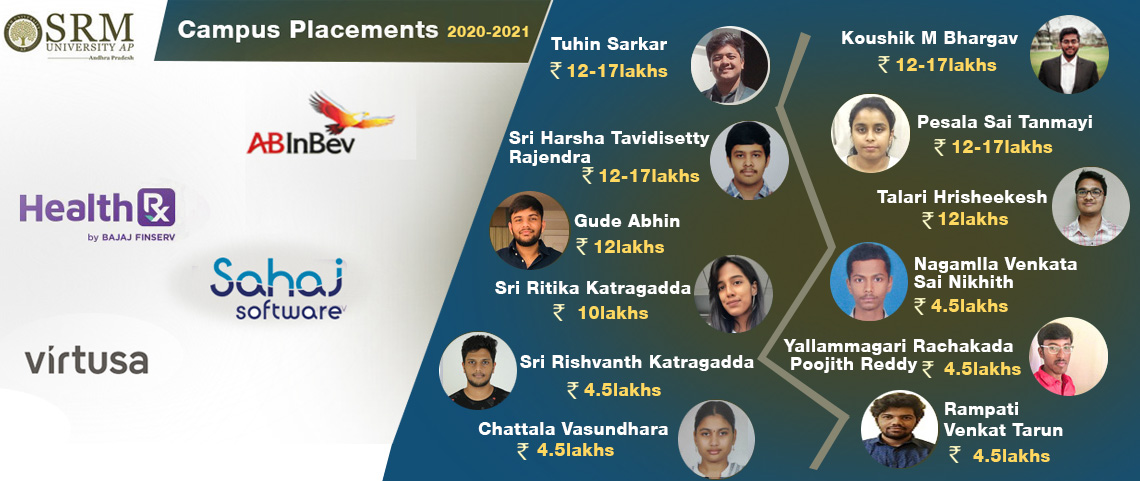Dr. Lakhveer Singh appointed in the Editorial Board of Journal Biomass conversion and Biorefinery
 Dr. Lakhveer Singh, Assistant Professor, Department of Environmental Science has been appointed in the Editorial Board of Journal Biomass conversion and Biorefinery (IF 2.60), a reputed journal published by Springer Nature from Germany. Journal Biomass conversion and Biorefinery have eminent scientists and professors from the top-notch institutes such as the Imperial College, London, University of British Columbia, University of California, Utrecht University, and many others of the same accord in their Editorial Board.
Dr. Lakhveer Singh, Assistant Professor, Department of Environmental Science has been appointed in the Editorial Board of Journal Biomass conversion and Biorefinery (IF 2.60), a reputed journal published by Springer Nature from Germany. Journal Biomass conversion and Biorefinery have eminent scientists and professors from the top-notch institutes such as the Imperial College, London, University of British Columbia, University of California, Utrecht University, and many others of the same accord in their Editorial Board.
Dr. Lakhveer is the second Indian till date to join the Editorial Board of Journal Biomass Conversion and Biorefinery. To add credibility to the journal and/or commemorate important experts in the field, the journal appoints eminent contributors in its editorial board. This honourable position is offered by the journal to Dr. Lakhveer because of his excellent research and publication track record. He has been working in the area of Energy Production and Biomass Conversion which are relevant to the journal’s scope, and has published more than 65 research articles and 6 books in the domain. Dr. Lakhveer says, “Every journal depends on its editor(s) and board to leave an impact on the society’s development. This is really a great achievement for me as well as good for the University’s recognition across the globe.”
The primary functions of being an editorial board member include writing editorials, commenting on special issues, serving as high-volume reviewers of submitted articles, evaluating and managing editors and publishers, assessing their journal and the review process, partaking in long-term planning for the journal, and discussing special features and financial issues.”
Dr. Lakhveer aspires to continue contributing substantially to the research and development in the field of Energy Production and Biomass Conversion and effectively execute the responsibilities endowed to him by the journal in the coming days.
- Published in News, Research News
Greetings from Vice Chancellor
 Dear Students,
Dear Students,
Greetings of the day!
I hope my letter finds you in the zenith of your health. Due to the unprecedented crisis, I am deprived of the opportunity to introduce myself to you in a more intimate way.
It is a matter of great pride and honour for me to be a member of an esteemed institute like SRM University-AP that prepares today’s students to meet the challenges of the future. Being an academician myself, I have had the privilege of being a part of many universities. I can say from my experience that SRM University -AP is becoming a pioneer in providing superior quality education in the neighbouring areas and is also engaged to extend these efforts to all of India and other countries.
As the University embarks on an exciting period of development in an immensely challenging and competitive environment with an ambitious strategy that builds on the well-established reputation for ground-breaking research, innovation and cross-disciplinary academic activity, it is the high time to demonstrate the capability to make a difference to the lives of individuals, communities and societies in the region and around the world. As Dr P. Satyanarayanan, the President of the SRM University-AP shares his vision of making SRM university- AP to be a truly global multi-disciplinary research-intensive educational institution, the burden lies on our shoulders to scale new heights.
It is creditable how the SRM University-AP has evolved a contemporary system to make it plausible for faculty, staff and students to appraise their skills and talent in numerous disciplines like engineering, basic and applied sciences, liberal arts, management and business studies. I also know that for students to achieve success, they need to be creative and innovative. I am glad to see that you are advancing towards your goal with the right attitude with a blend of extraordinary soft skills to make your personality impressive. I will advise you to do the extra reading which will enhance your perspectives and improve your language skills that will help you to adapt to the changing situations across the globe and to make you comfortable to face the challenges of the real world.
As the Vice-Chancellor of the University, I am looking forward to contributing to the internationally acclaimed SRM Group, through my best efforts. We at SRMAP would like to see that every student graduating from here would be industry-ready, and get numerous opportunities during their career. I consider myself fortunate to have this opportunity to be part of such a world-class institution in the sphere of higher education, that has been delivering quality teaching and learning, and research relevant to the society. I am confident that in the efforts to excel in the field of higher education, I will receive your support with greater zeal. Let us be a part of this revolution led by SRM University-AP and strive to become better citizens for our country irrespective of the cultural and financial background and contribute to the welfare of society and country’s development.
You can thoroughly count on my support and guidance as and when needed. Let us not be tamed and work together as a team to beat the pandemic and come out of it stronger than ever. Let us face the challenges and use the opportunities the COVID-19 has provided and reveal the best in us. The campus is rigorously kept safe and secure for your arrival in the near future. We have implemented various safety protocols and Standard Operating Procedures on the campus to ensure the safety of all and we are soon to be reunited on the campus.
Until then, Stay home! Stay safe!
Prof V. S. Rao
Vice-Chancellor, SRM University-AP
- Published in News
SRM AP faculty receives the prestigious grant by DBT/Wellcome Trust India Alliance
Investigating giant bacterial viruses to explore the origin of cellular complexity
 Dr. Sutharsan Govindarajan, Assistant Professor, Department of Biological Sciences, SRM University-AP has been awarded the prestigious ‘Early Career Fellowship’ grant by DBT/Wellcome Trust India Alliance, funded by the Department of Biotechnology (DBT) and the Wellcome Trust, United Kingdom. The fellowship supports outstanding young scientists to pursue high-quality research in the field of biomedical science and establish themselves as independent researchers in India. Dr. Sutharsan sought a total research grant of 1.1 crore for a period of 5 years as a DBT/Wellcome Trust India Alliance Early career fellow. The India Alliance grants are highly competitive and is based on the profile of the applicant and the novelty and the importance of the proposed research. Nationwide only less than 10 Early Career grants are awarded every year. Dr Sutharsan is a highly accomplished scientist, having published research articles in highly reputed journals, including the most prestigious Nature and Nature Microbiology. Through this fellowship, Dr. Sutharsan will establish an independent research laboratory at SRM University – AP with the support of Prof. Jayaseelan, Head, Department of Biological Sciences, and the fellowship supervisor of the project.
Dr. Sutharsan Govindarajan, Assistant Professor, Department of Biological Sciences, SRM University-AP has been awarded the prestigious ‘Early Career Fellowship’ grant by DBT/Wellcome Trust India Alliance, funded by the Department of Biotechnology (DBT) and the Wellcome Trust, United Kingdom. The fellowship supports outstanding young scientists to pursue high-quality research in the field of biomedical science and establish themselves as independent researchers in India. Dr. Sutharsan sought a total research grant of 1.1 crore for a period of 5 years as a DBT/Wellcome Trust India Alliance Early career fellow. The India Alliance grants are highly competitive and is based on the profile of the applicant and the novelty and the importance of the proposed research. Nationwide only less than 10 Early Career grants are awarded every year. Dr Sutharsan is a highly accomplished scientist, having published research articles in highly reputed journals, including the most prestigious Nature and Nature Microbiology. Through this fellowship, Dr. Sutharsan will establish an independent research laboratory at SRM University – AP with the support of Prof. Jayaseelan, Head, Department of Biological Sciences, and the fellowship supervisor of the project.
In this project, Dr. Sutharsan plans to venture and explore the biology of a novel class of bacteriophages called Jumbo-phages. “Bacteriophages, which are the most abundant biological entities on the planet, are viruses that infect bacteria but do not harm humans. Jumbo-phages, as the name suggests, are giant viruses with large genome. A sneak peek into their lifestyle during my postdoctoral research led me, to realize that these phages build fascinating complex structures inside the bacteria they infect. Such complex structures are well known to be formed in eukaryotic cells like human cells but was not thought to be made by bacteriophages, which have evolved billions of years before eukaryotes. Thus, studying how such cellular structures are formed by jumbo-phages provides a unique opportunity to investigate the origin of complex life” informs Dr. Sutharsan. He also explains that the proposed research has several biotechnological applications such as phage therapy and synthetic biology.
Dr. Sutharsan further shares, “This is one the best fellowships, a young scientist can obtain in India. It is an honour, prestige and a recognition for the scientist as well as to the University. In the next 5 years, I anticipate major fundamental discoveries in the field of bacteriophage biology and evolution”.
- Published in News, Research News
Campus Placements 2020-2021
12 brilliant students of SRM AP lands up with excellent job offers to initiate the Campus Recruitment Drive

SRM University-AP, Andhra Pradesh has commenced its journey to secure a better future for the first batch of students. Promising students of SRM AP have grabbed excellent job offers in the Campus Recruitment Drive for Class 2021 B.Tech students. Anheuser-Busch InBev offered 6 months internship, followed by a job offer to outstanding candidates. The company shortlisted Pesala Sai Tanmayi, Sri Harsha Tavidisetty Rajendra, Tuhin Sarkar, and Koushik M Bhargav. Anheuser -Busch InBev SA/NV, commonly known as AB InBev is a Belgian multinational drink and brewing company. The company has offered an internship stipend of 30 thousand per month and a CTC of 12-17 LPA to the candidates who will join the company after successful completion of their internship.
Another renowned company Health Rx, which innovates and develops secure web-based and mobile solutions to streamline information flow in the clinical and research environments, has offered Technical Internship with a stipend of 35 thousand per month, and post that a confirmed job offer with CTC of 12 LPA to Talari Hrisheekesh, and Gude Abhin. Further, VIRTUSA Corporation, an American IT service provider, offered a position in the company with a CTC of 4.5-6.5 LPA to Yallammagari Rachakada Poojith Reddy, Nagamlla Venkata Sai Nikhith, Chattala Vasundhara, Rampati Venkat Tarun, and Sai Rishvanth Katragadda. The other company which conducted the recruitment drive at SRM AP, Sahaj Soft, selected Sri Ritika Katragadda and offered her a CTC of 10 LPA. Sahaj Soft is a software services and consulting firm which provides simple solutions backed by their time-tested methodology and engineering practices.
As the recruiters shortlist the best young talent who are enthusiastic, devoted to learning and brimming with fresh and creative ideas, SRM AP placement team have thoroughly trained the students both in terms of technical expertise and soft skills. The rigorous training that the students underwent since the beginning of their B. Tech course, coupled with their talent and motivation, has enabled them to succeed in recruitment drive with flying colours. SRM AP believes that this is merely the beginning of the placement season, and many more brilliant students are waiting to showcase their mettle to land up with excellent job offers in top-notch companies.
- Published in CR&CS NEWS, News

